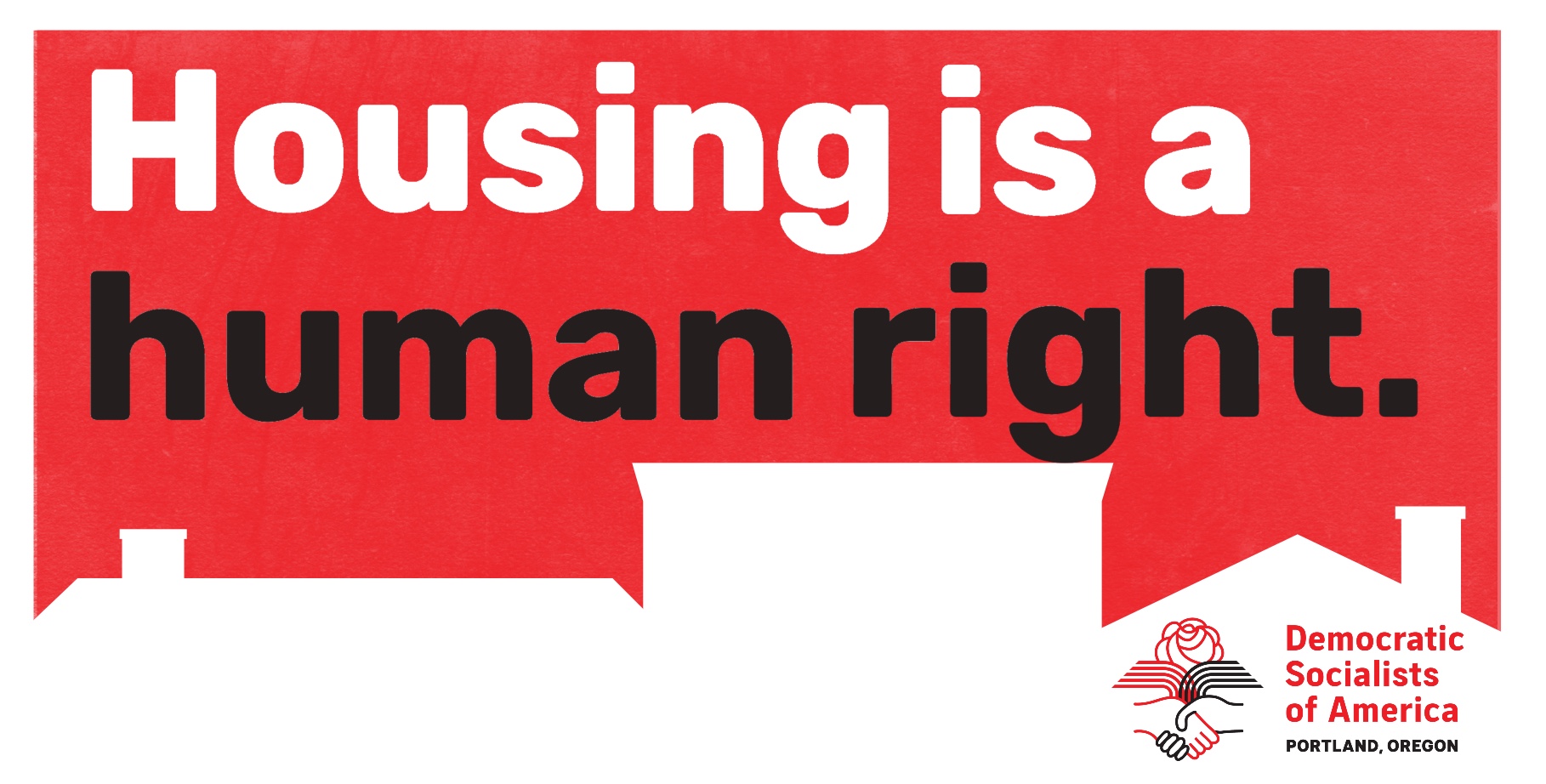November 3, 2025 (PORTLAND, OR) – Portland Democratic Socialists of America (DSA) condemns in the strongest possible terms Mayor Keith Wilson’s decision to begin enforcement of the city’s “public camping” ban, a policy of profound cruelty that criminalizes poverty and will exacerbate the city’s homelessness crisis.
This enforcement begins on the same day that federal SNAP benefits expire for over 15,000 homeless individuals in Multnomah County, stripping them of essential food aid while the city simultaneously threatens them with fines and jail time. Many low-income renters will also risk eviction and homelessness. Rather than offering support and leniency in the face of this federal abandonment, the Mayor has chosen to pile on penalties.
“Mayor Wilson’s decision to unleash the police on our most vulnerable neighbors on the very day they lose their food assistance is an act of stunning inhumanity,” said Chris Olson, Co-Secretary the Housing Working Group in Portland DSA. “He is exploiting a national tragedy to advance a policy of sweeps and cages that we know, from overwhelming evidence, kills people. To call this ‘compassion’ is a lie. It is a deliberate choice to inflict suffering in a misguided attempt to make poverty invisible.”
The Mayor’s punitive approach is further underscored by his recent decision to place the Director of the Portland Housing Bureau — a national expert in social housing — on administrative leave. This move signals a clear rejection of the long-term, housing-first solutions that are proven to work, in favor of a failed strategy of criminalization.
The shelter system remains hundreds of beds short of need, operates with restrictive hours that fail to meet the needs of many, and does not address the root cause of the crisis: a catastrophic lack of affordable housing. This misallocation of funds has directly deprived proven, cost-effective solutions — like direct rental assistance, food aid, and public housing — of critical resources.
“Mayor Wilson promised us he was an innovator,” said Nathan Johnson, Co-Chair of the Housing Working Group in Portland DSA. “Now he’s slammed the door in innovation’s face to insist on the same discredited approach that has given us a continuously declared housing state of emergency since 2015.”
Portland DSA questions the fiscal prudence and underlying motives behind the Mayor’s rushed push for a shelter-based solution. The organization calls on the Portland City Council to immediately launch a formal investigation into whether the Mayor’s office wasted millions of taxpayer dollars to prop up a temporary shelter system that was designed to fail.
“We have serious concerns that public funds were squandered to create a pretext for this camping ban,” said Brian Denning, Co-Chair of Portland DSA. “Did the Mayor waste money on a shelter system he knew was insufficient, just to create a veneer of ‘available shelter’ and justify a punitive crackdown? The City Council has a duty to investigate this potential misuse of taxpayer money. Every dollar spent on a failed shelter strategy is a dollar stolen from a rental assistance program that could have actually kept a family in their home.”
The “Finding Home” report recently published by the Welcome Home Coalition and Sisters of the Road confirmed that 91% of homeless Portlanders need rental assistance, and 65% want to live in a house—not a congregate shelter or a temporary bed. The Mayor’s focus on coercion and criminalization is a direct rejection of what people actually need and want.
Portland DSA stands in solidarity with the unhoused and joins Councilor Mitch Green and community advocates in demanding a radical change in direction. A first step would be passage of the Renters’ Bill of Rights — a landmark set of protections which would stem the deepening houselessness crisis. We must stop criminalizing poverty and start investing in real, permanent solutions: social housing, lowering the cap for the eviction relocation ordinance, universal rental assistance, and low-barrier services that offer a hand up, not a sweep away.

